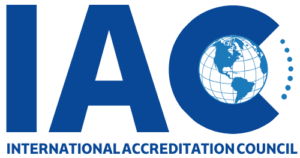ISO 14001
ISO 14001 is an international standard for Environmental Management Systems (EMS). The full title of the standard is ISO 14001:2015, “Environmental management systems — Requirements with guidance for use.” It provides a framework for organizations to establish and effectively manage an environmental management system to improve their environmental performance and demonstrate a commitment to sustainable practices.
Key elements and requirements of ISO 14001 include:
Environmental Policy: Organizations are required to establish and maintain an environmental policy that includes a commitment to compliance with applicable legal requirements and a commitment to continual improvement.
Planning: This section focuses on identifying environmental aspects and impacts, legal and other requirements, and determining the risks and opportunities associated with these aspects. Organizations must plan actions to address these issues.
Implementation and Operation: ISO 14001 outlines requirements for establishing and implementing the environmental management system. This includes defining roles, responsibilities, and authorities, providing training, and establishing communication procedures.
Monitoring and Measurement: Organizations must establish and maintain a process for monitoring, measuring, and evaluating their environmental performance. This includes monitoring compliance with applicable legal requirements.
Evaluation of Compliance: Organizations are required to establish, maintain, and regularly evaluate a procedure for periodically assessing compliance with applicable legal requirements.
Review of the Environmental Management System: Top management is responsible for conducting periodic reviews of the EMS to ensure its continuing suitability, adequacy, effectiveness, and alignment with the organization’s strategic direction.
Continual Improvement: ISO 14001 promotes a commitment to continual improvement. Organizations must continually seek opportunities to improve their environmental performance, including the prevention of pollution.
ISO 14001 is applicable to any organization, regardless of its size, type, or nature of the business. It is designed to be flexible and adaptable to various organizations and sectors. Implementation of ISO 14001 can help organizations minimize their environmental impact, comply with legal requirements, and enhance their reputation as environmentally responsible entities.
Organizations seeking ISO 14001 certification undergo an assessment by accredited certification bodies to ensure compliance with the standard’s requirements. Certification to ISO 14001 demonstrates to stakeholders, customers, and the public that an organization is committed to environmental responsibility and sustainable business practices.
